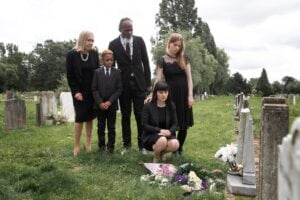Should you delay your retirement because of COVID-19?
Some are suggesting Baby Boomers set back their retirement by up to five years to give their investments time to recuperate from coronavirus-induced market losses. But the answer depends on your own asset mix and expectations.











I am retiring on June 30, 2020 one way or the other, at age 61. My employer pension plan is chump change, so it forms no part of my retirement funding. But my husband has a defined benefit plan that will be reasonable but not golden when he retires next year. With our carefully invested savings, a clear view of our spending habits (detailed spending analysis over the last 10 years) no debt at all, and regular reviews of our situation by a fee only financial planner, we are ready.
To quote our advisor “you can generate more income than you use now, what are you scared of? Oh and other than our immediate two years of money in a GIC, the rest is not invested ‘low risk’ strategies. A high quality dividend portfolio is the core of our plan, and some alternate investment strategies that suit us and are producing well even with the volatility. We will apply for OAS and CPP at 65.
To me the key to being ready to retire is to understand how you spend and/or save money – keeping accurate records of your spending habits can teach you a great deal about what you will need in retirement. And getting 100% debt free before retiring is critical.
We have money saved for some eventual house repairs, some travel, some fun and will continue living a similar lifestyle as that we have been enjoying for the last 10 years, just with more free time. We are not wealthy, we live comfortably but carefully and have planned for this time for most of our adult lives.
Not sure why article talks about losing 30% of the current value of your investments. I have a balanced and diversified ETF portfolio originally 60% equity 40% fixed income prior this virus issue. When markets started to go back up (around the -25% to -30% range, I rebalanced my portfolio selling my safe fixed income ETFs and bought equities. I also shifted the makeup of the portfolio to 73% equities and 27% fixed income. As of today, end of day, I’m at -3.23% YTD.
On that basis, why would I defer my retirement. My portfolio did what it was supposed to do to buffer the downward blow and I did my part to rebalance the portfolio and take advantage of the circumstances. Nothing else.
If that’s too hard for the average person to do, own an all in one ETF like XBAL or XGRO. They are currently at -4.08% and -6.30%. YTD.
And then, enjoy your ”not” delayed retirement.
Good article but you can’t always blindly follow what financial planner recommends. Having 2 yrs living expense as cash as well as 5 yrs of living expenses in measly 2% GIC is way too much of cash floating around. GIC as we all know is almost as worthless as cash itself for an investment vehicle. Keeping total of 7 yrs of living expense in cash could be anywhere from $200K to $300K. I’d call it pretty dumb having that much cash seating around, not invested. This pandemic won’t last like 7 yrs, that’s far fetched over exaggeration. I’d guess within 2 to 3 months, we’ll be able to get back on our feet again. As most people say keeping 1 or at most 2 yrs of living expenses in cash would suffice as safety net when things go south. The rest must be invested. Cash is not a king. Some highly successful investors even suggested to invest with everything you got until you go broke.
It took a while to understand the points mentioned in the article. Good stuff. I really appreciate the hardwork behind this article. Thanks & Keep up the good work!